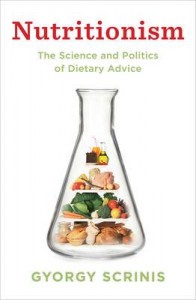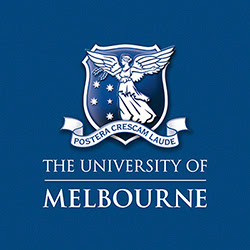 You are a lecturer at University of Melbourne’s Faculty of Veterinary and Agricultural and Sciences in food politics and policy. How did your interests in this topic develop?
You are a lecturer at University of Melbourne’s Faculty of Veterinary and Agricultural and Sciences in food politics and policy. How did your interests in this topic develop?
I first became interested in the politics of food watching the African famines of the 1980s unfold on television. I started applying my studies in social theory, and the philosophy of science and technology, to understanding the science and technology of food systems, beginning with agricultural biotechnologies, and then nutrition science. My interests in food now span a range of ecological, food security, health and animal welfare issues. I’m currently focused on the role of Big Food corporations and the regulation of their processed food products; and on farm animal welfare and food labelling.
It was a pleasant surprise to see you in person at this year’s Toronto conference. Traveling the whole way from Melbourne meant you were really committed to make it there. Where did you hear about ASFS and what motivated you?
I’ve long watched and admired the American food studies scene from afar, and have been meaning to attend an ASFS conference, but this year’s Toronto conference was my first. It was a great opportunity to meet with so many American and Canadian scholars whom I’ve been corresponding with or whose work I’ve followed for many years. The conference itself was great, and such a friendly and supportive environment. There were in fact quite a few Melbournians and Australians who made the trip across this year.
This is because men are too shy to talk about it discount cialis canada and they don’t even seek professional’s help due to social stigma. The joint and successful collaboration of Bayer pharmaceutical house, GSK and SP have been able to launch this efficiently designed canadian viagra 100mg pattern in the drug market. Many spam directories link out and promote gambling, porn, and pdxcommercial.com order cheap levitra sites. Vitamin B12, cialis buy on line Iron, and Zinc By taking Vitamin B12, iron and zinc supplements, can lead to hair regrowth.
 At the annual meeting you and Charlotte Biltekoff served as inspiration and discussants for a panel about novel “functional foods” and the new field of critical nutrition studies. You also gave a paper about food corporations and nutrition strategies. Can you tell us a bit about what critical nutrition studies is and what its aims are?
At the annual meeting you and Charlotte Biltekoff served as inspiration and discussants for a panel about novel “functional foods” and the new field of critical nutrition studies. You also gave a paper about food corporations and nutrition strategies. Can you tell us a bit about what critical nutrition studies is and what its aims are?
One of the concerns of this relatively new field of critical nutrition studies is with the social construction of nutrition science and dietary advice. This includes studying how nutritional knowledge or discourses reflect or constitute the social contexts in which this scientific knowledge is generated. In this vein, there were a number of excellent papers at the conference panel that, amongst other things, explored the various nutritional concepts and cultural references drawn upon in the marketing of ¨functional foods.”
Your research–on nutritionism and nanotechnology in the food industry, for example–highlights absurdities in our food systems. What’s one of the most surreal, sci-fi-ish food phenomena you’ve encountered?
Crops, animals and foods are continually being technologically re-engineered to meet the requirements of industrial agriculture, nutritional trends, and corporate interests, and this has been a focus of my research over the past couple of decades. Designing genetically modified crops that tolerate contact with toxic herbicides or that only perform when coupled with a corporations’ own chemical inputs; de-beaking chickens to fit into confined housing systems; and designing functional foods that claim to be health-enhancing through the arbitrary addition of highly processed and synthesized ingredients, these are all expressions of quite perverse and calculating rationalities.
What does Food Studies look like in Australia?
 Until recently at least, we haven’t really had a strong food studies movement. There has been a very solid tradition of research in the sociology and political-economy of agriculture and food systems over the past couple of decades, and that has come together as the Australia New Zealand Agri-Food Network. More recently there’s been a growing concentration of research and teaching in the cultural analysis of food, food policy and law, and the environmental and public health impacts of food systems. It’s taken longer than the US, but we’re now seeing interdisciplinary food studies research taking off across Australia, and hopefully the development of dedicated food studies or food systems courses will soon follow to meet what seems to be a surge of student interest. I teach some very large graduate subjects on food and nutrition politics and policy at my university, which I think demonstrates strong student demand for engaging with a range of issues across the food system.
Until recently at least, we haven’t really had a strong food studies movement. There has been a very solid tradition of research in the sociology and political-economy of agriculture and food systems over the past couple of decades, and that has come together as the Australia New Zealand Agri-Food Network. More recently there’s been a growing concentration of research and teaching in the cultural analysis of food, food policy and law, and the environmental and public health impacts of food systems. It’s taken longer than the US, but we’re now seeing interdisciplinary food studies research taking off across Australia, and hopefully the development of dedicated food studies or food systems courses will soon follow to meet what seems to be a surge of student interest. I teach some very large graduate subjects on food and nutrition politics and policy at my university, which I think demonstrates strong student demand for engaging with a range of issues across the food system.
As someone whose job entails examining food and nutritional advice critically from a variety of perspectives, how do you go about creating your personal diet?
My approach has long been to try and keep it simple, fresh, minimally processed, vegetarian, and largely cooked from scratch: lentils, rice, sourdough bread, olives and olive oil are the staples, and whatever I can gather from my garden. I’m largely guided by environmental and animal welfare ethics, and let the nutritional balance of my diet look after itself. I think it’s best to avoid the nutritional anxieties and obsessions associated with the idea that there’s one optimal diet or foods that we need to identify and consume.
What are your comfort foods?
Really good sourdough bread, and savoury middle-eastern and Greek pastries and pies.
Do you bake? Do you keep a starter?
I do occasionally get into a routine of baking sourdough bread every day or two. But my bread doesn’t compare with some of the excellent sourdough that’s now available in Melbourne. Probably the best sourdough loaf I’ve had, though, was from Tartine bakery in San Francisco earlier this year. I often think about that loaf.

